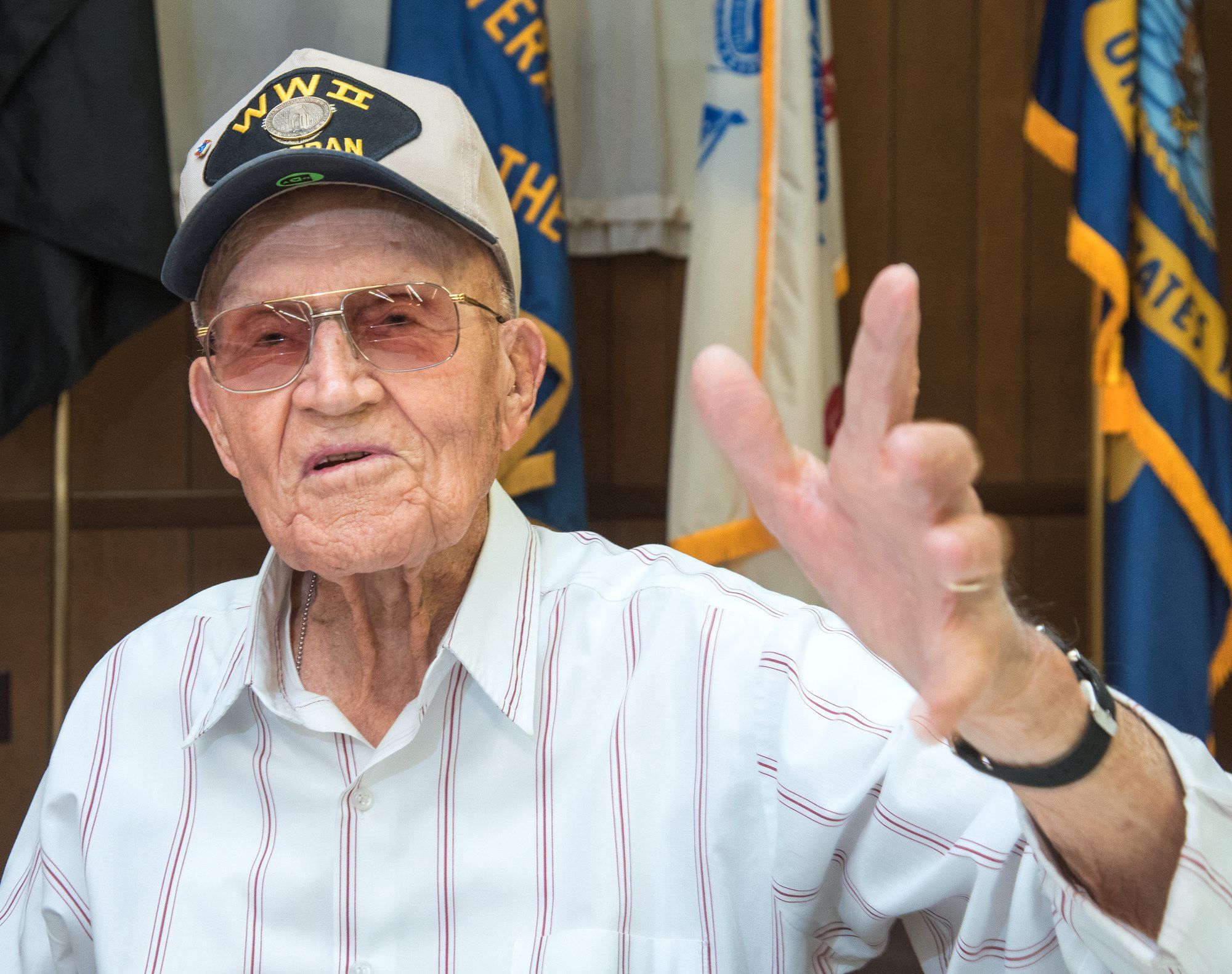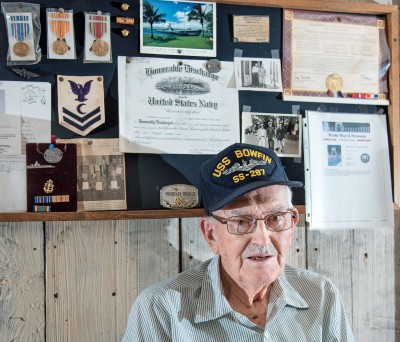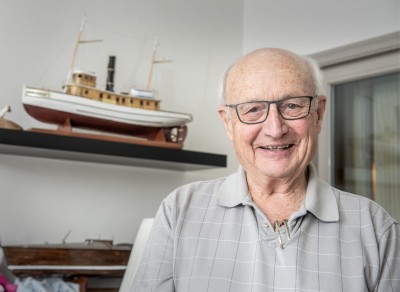Leonard Wirges
By Paul Wood

Photo By Robin Scholz/The News-Gazette
RANTOUL — Leonard Wirges risked his life in World War II, then lived through a lot of history, staying in the Army for the Korean War and the Cuban Missile Crisis and working in Vietnam as a civilian.
He’s modest about the dangers he faced as the U.S. took back Guadalcanal island from the Japanese.
“I didn’t get wounded,” he says, though bombs were dropped near him.
And then there were the ack-ack — 90-millimeter anti-aircraft fire — U.S. guns.
“We had our own ack-ack dropping down on us, going through the tents,” he says, holding his hands 18 inches apart.
Wirges, 93, grew up in Nebraska, and came to this area to work in Rantoul when it still had Chanute Air Force Base.
He was drafted into the Army in 1942, and by the time he got to the Pacific, the Japanese empire was shrinking island by island.
Because he “grew up on a good saddle horse and a John Deere tractor,” Wirges was handed a set of tools instead of a rifle.
Japan wasn’t giving up Guadalcanal easily.
“Japan was fighting hard to keep the Canal. They kept sending bombers and fighter aircraft to the Canal,” he says.
He witnessed amazing aerial fighting, including an American P-38 fighter on night patrol taking out two Japanese bombers — one in a power dive down and the other on the way back up.
“The pilot did some victory rolls,” he says.
Whether there was fighting at the moment or not, Wirges was moving heavy equipment, taking a power plant to a field hospital or field headquarters.
It wasn’t deliberate fire that caused heavy damage. Somebody doing a careless job of burning grass set off a two-day fire of exploding munitions.
“The war lost a lot of vital ammunition those two days,” he recalls.
His base also supported the invasions of Bougainville and New Ireland in Papua New Guinea.
After doing stevedore work at Emirau Island, his unit moved in 1945 to the Philippines.
“We prepped tanks” for the invasion of Japan, he says.The tanks arrived sealed, and his crews fueled them, put acid in their batteries and did other work on them.
“The tanks were snow-white inside,” he remembers.
They readied hundreds of tanks that were never used against the Japanese because the war was going America’s way.
“The war was moving so fast toward the end,” he says.
Wirges says an invasion of Japan would have been deadly, with the fearful combination of kamikaze suicide planes in the air and an obdurate land army that probably would have included civilians.
In all the hurry, he had gone 32 months without rest and recreation, and suddenly, with the dropping of two atomic bombs, the war was over.
He arrived back in the states on New Year’s Eve, 1945.But that wasn’t the end for him.
During the Korean War, he worked in Army construction in Arizona. A dec- ade later, now in the reserves, he and his unit were put on alert for the Cuban Missile Crisis.
Retiring as a chief warrant officer, Wirges continued to work for the military, supervising firetruck maintenance and de-icing training for a month in Vietnam during that war.
He had 23 ports of call in his career.
His wife, Lorraine, also worked at Chanute. They have three children.
Do you know a veteran who could share a story about military service? Contact staff writer Paul Wood at pwood@news-gazette.com.
Read more stories from local veterans:
 Dann Hufford
RANTOUL — Staff Sgt. Dann Hufford earned the Bronze Star facing down a truck full of explosives heading right at him. It …
Dann Hufford
RANTOUL — Staff Sgt. Dann Hufford earned the Bronze Star facing down a truck full of explosives heading right at him. It …
 Richard Smith
FARMER CITY — A Japanese destroyer dropped 14 depth charges in about as many seconds on Richard Smith’s submarine. “It s …
Richard Smith
FARMER CITY — A Japanese destroyer dropped 14 depth charges in about as many seconds on Richard Smith’s submarine. “It s …
 Robert Bentz
CHAMPAIGN — In the tense period following the Korean War armistice, Navy Lt. Robert Bentz of Champaign spent much of his …
Robert Bentz
CHAMPAIGN — In the tense period following the Korean War armistice, Navy Lt. Robert Bentz of Champaign spent much of his …